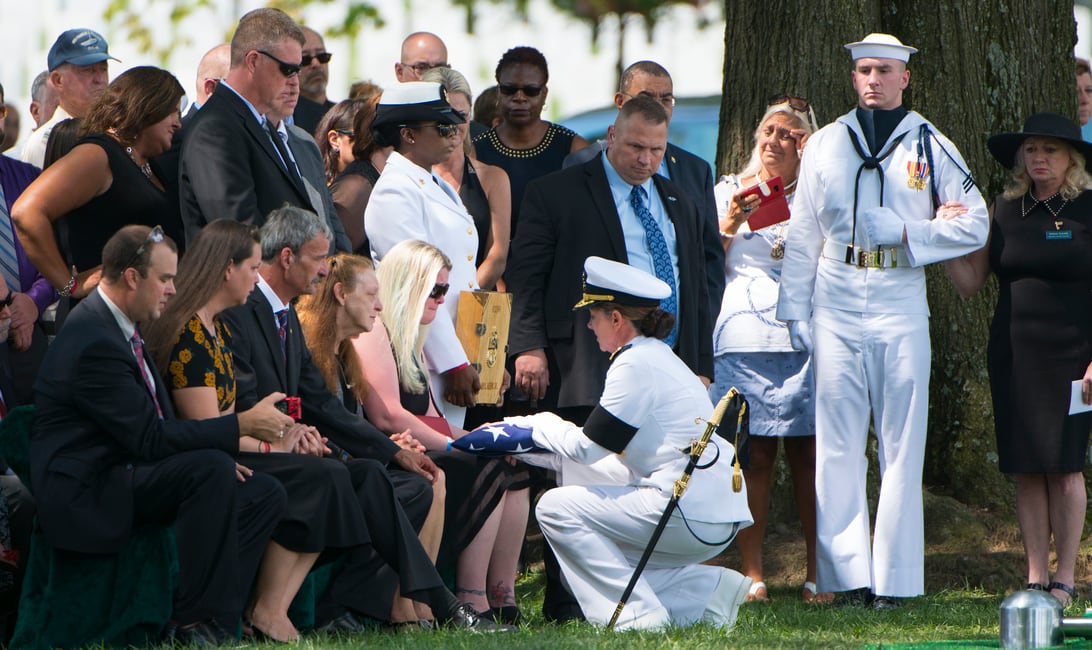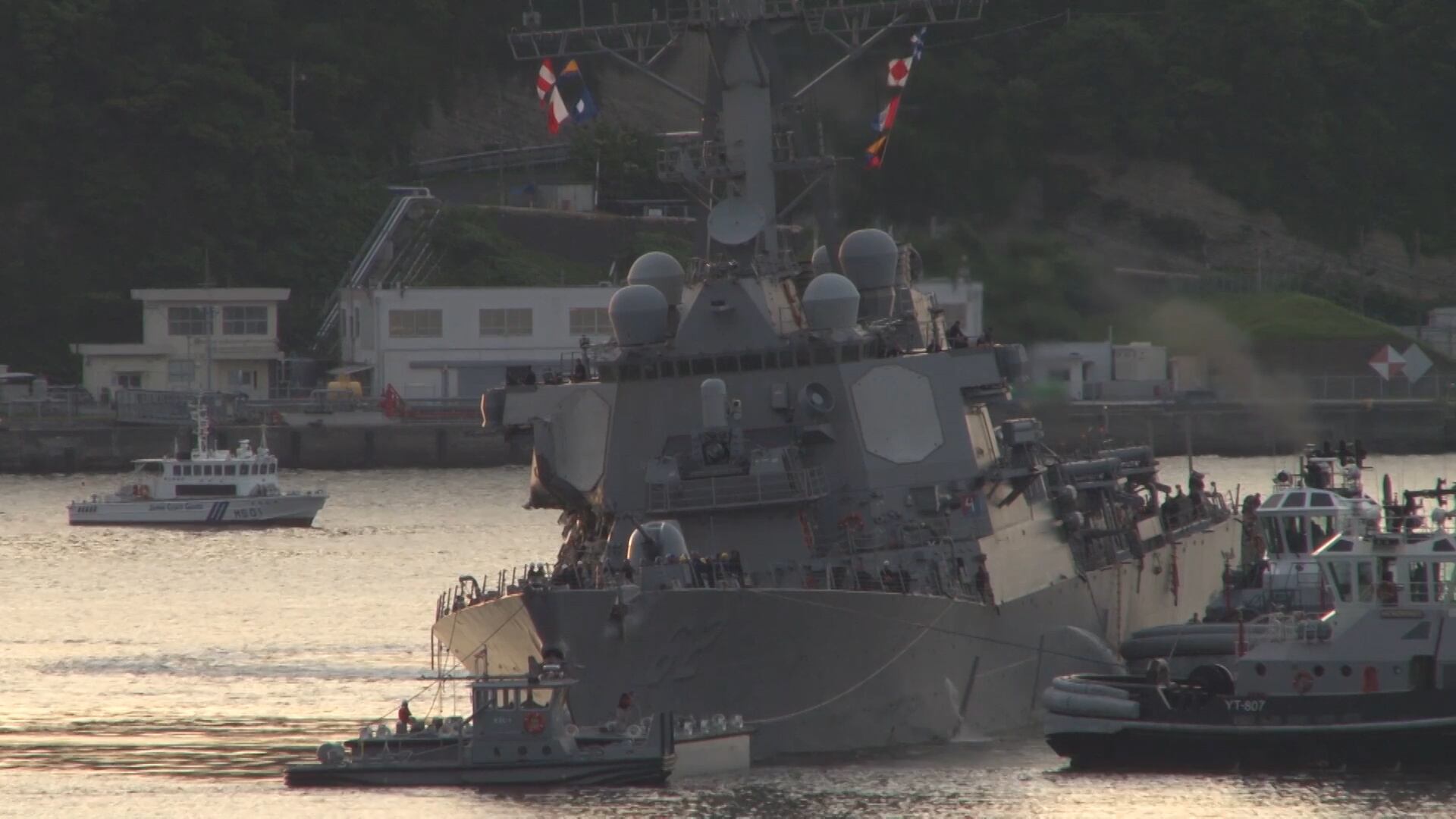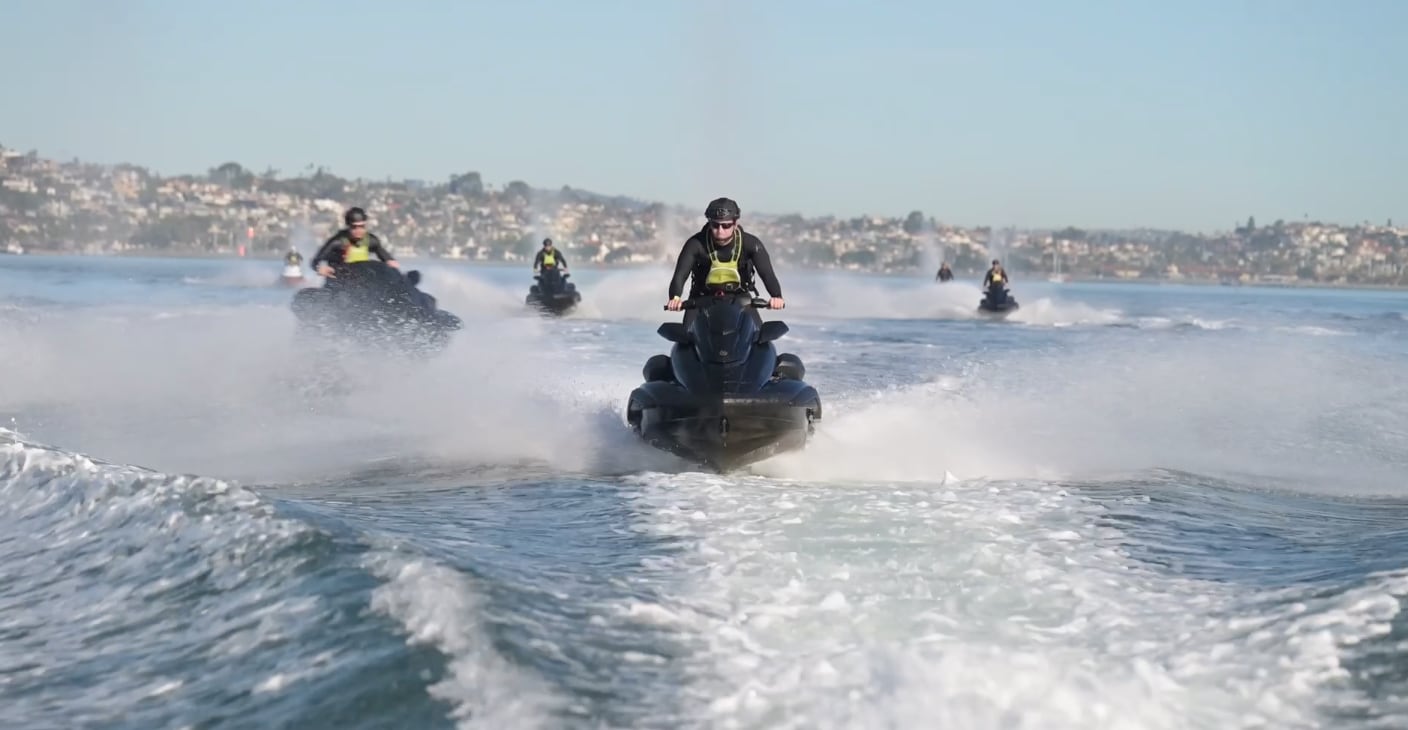SAN DIEGO – The Navy’s top officer Friday defended the decision to keep from the public eye a damning internal report on the 2017 warship Fitzgerald collision that killed seven sailors.
Speaking to reporters after his appearance at the U.S. Naval Institute’s West 2019 conference here, Chief of Naval Operations Adm. John Richardson said much of the report overlapped with what the service publicly released.
But much of the probe overseen by Rear Adm. Brian Fort portrayed a far grimmer picture of what the crew of the guided-missile destroyer faced. It also prompted hard questions about the actions taken by the Fitz’s squadron and Navy officials back in the United States.
First revealed by Navy Times, the Fort report chronicled details that Richardson, other Navy leaders and their public reports never mentioned, such as specifics about the destroyer’s brutal operational tempo, officers who didn’t trust each other, radars that didn’t work and sailors who didn’t know how to operate them.
The investigators also portrayed the warship’s chiefs mess as ineffective and their sailors plagued by low morale in the months leading up to the June 17, 2017, collision.
RELATED

Reporting by ProPublica this month offered further insight into the Fitzgerald tragedy, renewing debate about the decisions made in the highest ranks of the Navy, including those by Richardson both before and after the collision.
Richardson stood by his decision to keep details from the public, insisting that the Fort report’s status as a dual-purpose investigation meant it was “locked up in other litigation.”
“I think what you’ll find is that if you take a look at what we did release, that there was a tremendous overlap and there’s not a lot of difference in terms of actionable information between what we released and what you released,” Richardson told Navy Times.
Richardson said the Navy released the entirety of its comprehensive review and strategic readiness review, calling it “the appropriate amount of information" and later adding that it provided “a sufficient level of actionable details.”
Richardson declined to answer a question about comments made at a U.S. Senate hearing this week by fellow four-star Phil Davidson, the head of U.S. Indo-Pacific Command.
When pressed by Maine Sen. Angus King about readiness in the surface fleet, Adm. Davidson said that while the Fitzgerald and its fellow destroyer John S. McCain suffered fatal collisions in 2017, “280-odd other ships weren’t having collisions.”
“I think that any high performing organization needs to be focused on really fixing every possible defect. These are the characteristics of high-performing organizations,” Richardson said in response to a question about Davidson’s comment.
“The United States Navy is a high performing organization and so we’re going to continue to be focused on eliminating problems wherever we find them.”
A reporter noted that Richardson did not answer the question about Davidson’s statement.
“That’s the answer you get,” Richardson told the reporter.
“High performing organizations focus on fixing problems,” he repeated. “We’re going to remain focused on fixing the problems.”
RELATED

The Navy has addressed 80 of 111 reform recommendations laid out in the comprehensive and strategic readiness reviews and “the rest are on track” but some will take longer, Richardson said.
“The idea of changing the culture, particularly in the surface force to be one of standards and assessments and those sorts of things,” Richardson said. “You can start to see that culture change … moving the team more towards a culture of rigor and standards for material training, certifications, enhancing the career path to do more training, get more experience, more assessments, again, so I think that you’re starting to see all those things moving in the right direction.”
Sen. King told Davidson at this week’s hearing that he wasn’t getting enough hard data charting how the surface fleet reforms were progressing.
“I would like to see specific data on where we stand with issues like certification of sailors and personnel on the ships, maintenance status of the ships, training rules, staffing levels, and I want real numbers,” King said. “I don’t want general ‘We’re working on staffing’ or ‘We’re working on more training.’”
Richardson told reporters that he will make sure King gets whatever information he wants.
RELATED

Asked about the status of the Navy’s probe of hundreds of officers suspected of infractions in the so-called “Fat Leonard” scandal, Richardson declined to set a deadline for when the sea service wraps up its reviews.
“Every time I make a prediction, I end up being inaccurate, so I’m hesitant to make any kind of an end date prediction,” Richardson said.
He added Navy leaders need to properly propagate lessons learned along the way.
The U.S. Justice Department is prosecuting the most severe allegations in the West Pacific public corruption cases involving scores of Navy officers, including members of the admiralty, but it passed hundreds of lower-level cases to the Navy for final adjudication.
Geoff is the managing editor of Military Times, but he still loves writing stories. He covered Iraq and Afghanistan extensively and was a reporter at the Chicago Tribune. He welcomes any and all kinds of tips at geoffz@militarytimes.com.





